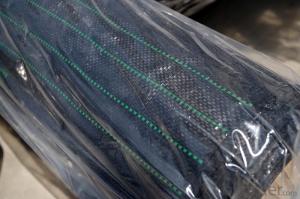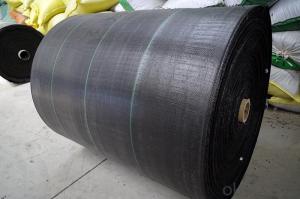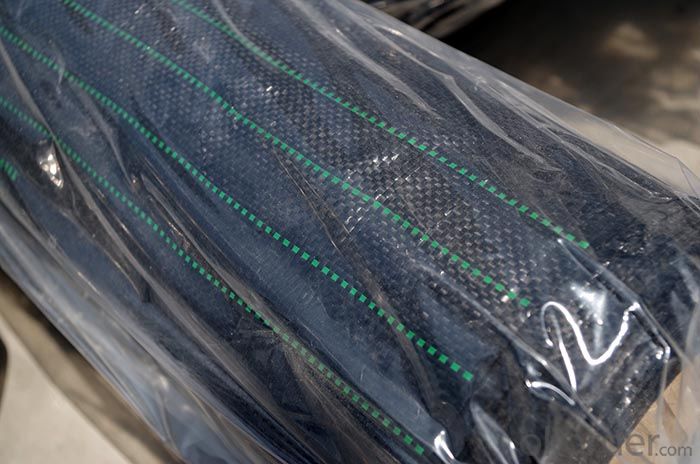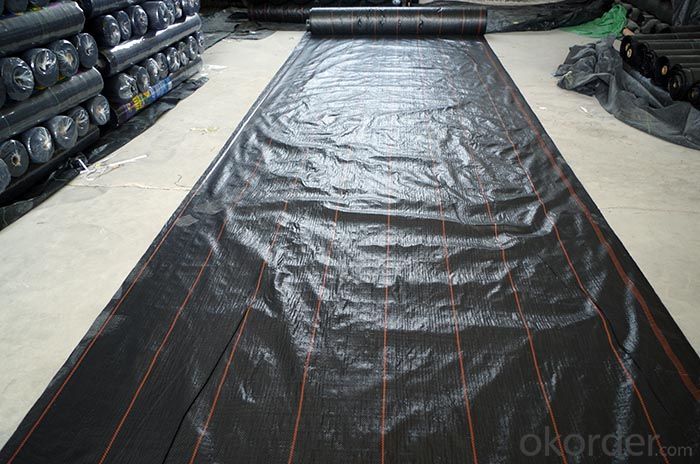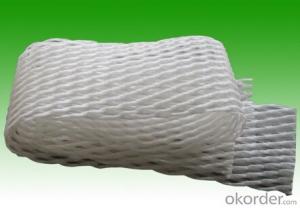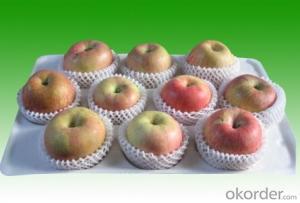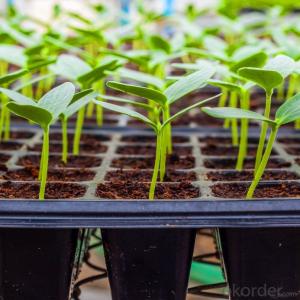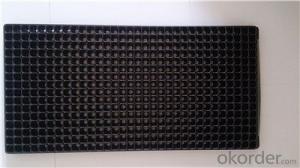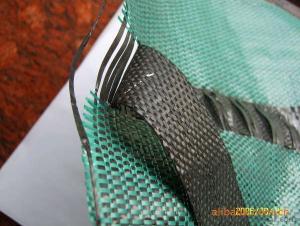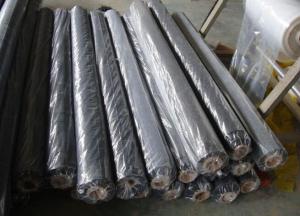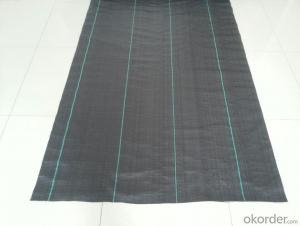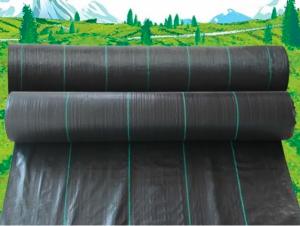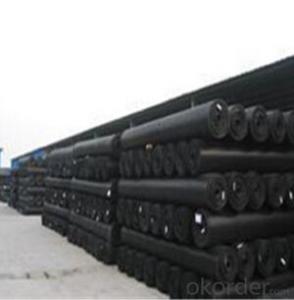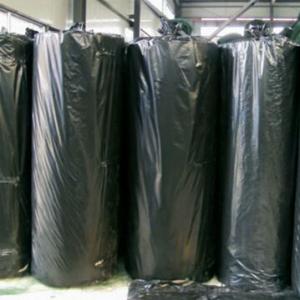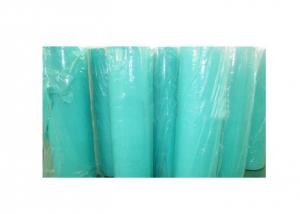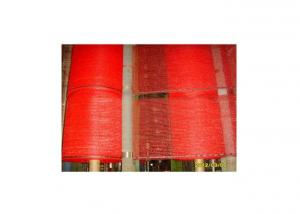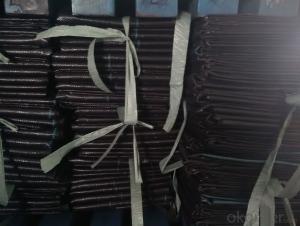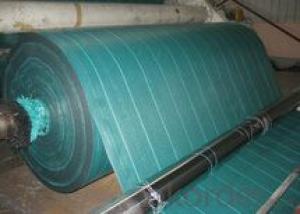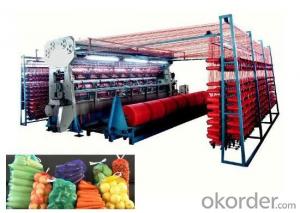PP Weed Control Fabric for Agriculture application
- Loading Port:
- Shanghai
- Payment Terms:
- TT OR LC
- Min Order Qty:
- 1000 m²
- Supply Capability:
- 200000 m²/month
OKorder Service Pledge
OKorder Financial Service
You Might Also Like
PP Weed Control Fabric for Agriculture application
Production Description:
Weed Control fabric not only prevents weeds, it encourage root growing by keep soil moist and cool. Made of UVtreated polypropylene,this costeffective weed control fabric features allow the free flow of air,water and nutrients to the soil while blocking sunlight and weeds.This chemical free method for stopping weed grow for years.
Application:
1. Weed block for landscaped garden beds
2. Permeable liners for planters (stops soil erosion)
3. Weed control under wooden decking
4. Geotextile for separating aggregate / soils under walkway blocks or bricks
5. Assists in preventing paving from settling unevenly
6. Landscape fabric prevents soil erosion
Production Specifications:
Material | Woven PP/PE Fabric |
Width | 0.5m-4.4m |
Length | 50m-2500m |
Color | Black/Grass Green/Japser/Black-Green |
Weave | 9*9 to 13*13 |
Weight | 60gsm-180gsm |
U.V. | With or Without U.V. |
Life Span | 3~5 years with U.V. treated |
Feature | Non-Toxic |
Style | Plain |
Production Application:
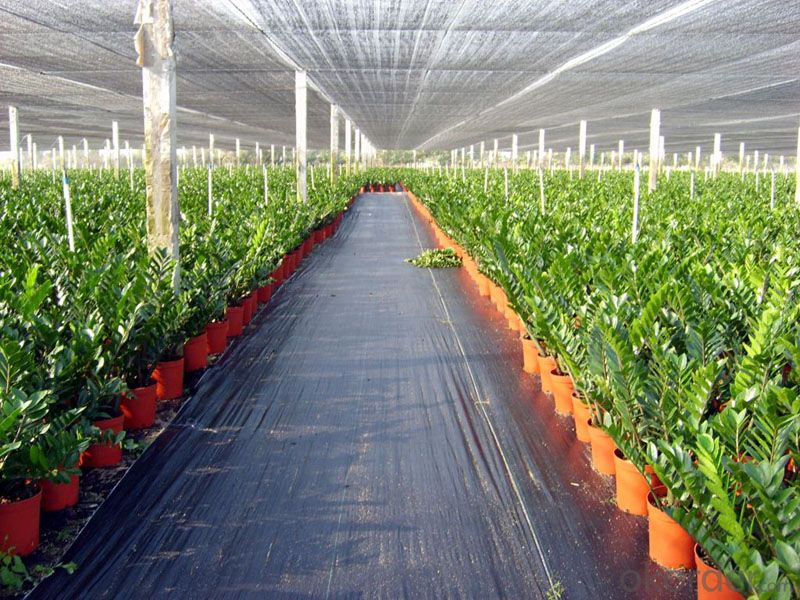
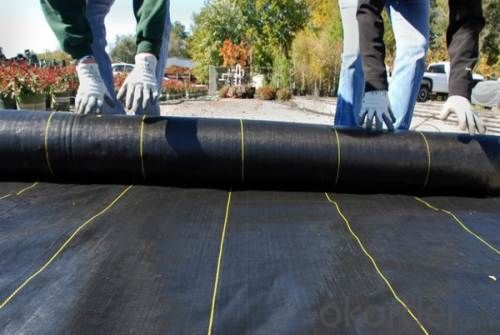
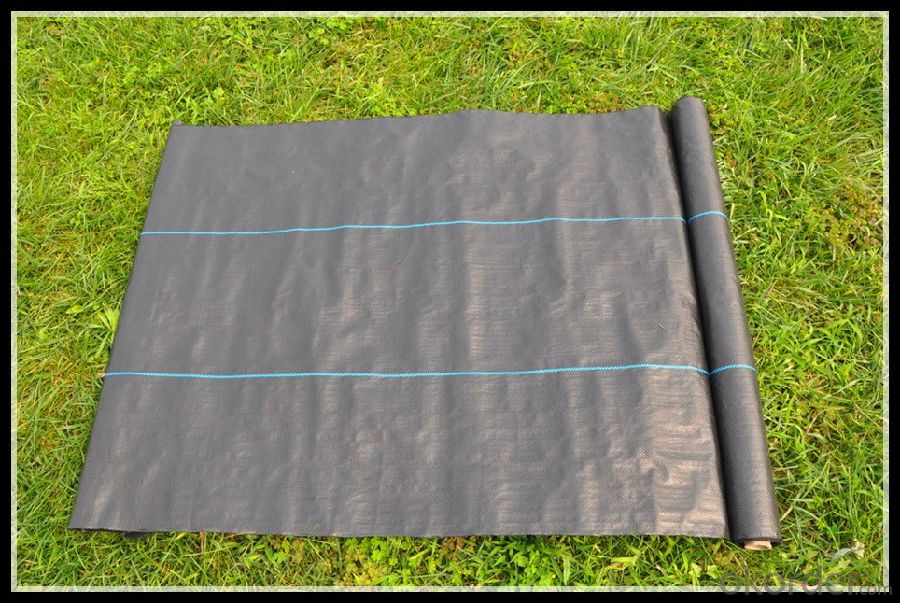
FAQ:
1. Where is your factory located in?
Factory is located in Jiangsu Province, Neat to Shanghai Port.
2. How long have you been in this product production?
We have been in the business more than 10 years,
3. Can we have some sample or trial order before bunk order?
Yes, we can provide you some free samples, and for trial order, we will offer you the lowest price.
- Q: How to handle packing bags?
- A variety of plastic packaging materials processing methods should be based on different packaging forms and quality, as well as the nature of plastic packaging materials targeted. The general principle is that it can not cause two pollution in the process of recycling and the most efficient recycling of resources and energy. Therefore, the waste plastic packaging materials to form a set of comprehensive recovery complete governance model, taking effective comprehensive measures, so that waste plastic packaging materials can be fully recycled, to reduce "white pollution on the environment caused by the" burden, promote the development of circular economy.
- Q: What are the methods to lessen the environmental effects of agricultural plastic products?
- <p>To reduce the environmental impact of using agricultural plastic products, consider the following strategies: 1) Use biodegradable plastics that break down naturally, reducing pollution. 2) Implement recycling programs to repurpose used plastics, decreasing waste. 3) Opt for reusable plastic products to extend their lifespan and lower consumption. 4) Employ precision agriculture to minimize plastic use while maintaining productivity. 5) Educate farmers about the importance of proper disposal and the environmental consequences of plastic misuse. 6) Support research into eco-friendly alternatives to traditional plastics in agriculture. 7) Advocate for policies that regulate and reduce plastic use in agriculture.</p>
- Q: What are the alternatives to plastic materials used in agriculture?
- <p>Yes, there are several alternative materials to agricultural plastic products. These include biodegradable plastics made from plant-based materials like cornstarch or polylactic acid (PLA), which break down more easily in the environment. Additionally, there are natural fibers such as hemp or coconut coir that can be used for mulching and other purposes traditionally served by plastic. Some farmers are also exploring the use of paper-based products and compostable materials as alternatives to plastic in agriculture. These alternatives aim to reduce the environmental impact of plastic waste while maintaining the functionality needed for agricultural practices.</p>
- Q: This question asks whether the use of biodegradable adhesive agents can enhance soil quality and increase crop production.
- <p>Yes, biodegradable adhesive agents can potentially improve soil quality and crop yields. These agents can help bind soil particles, increasing water retention and reducing erosion. They also contribute to the formation of soil aggregates, which improves aeration and root penetration. As a result, plants can access more nutrients and water, leading to better growth and higher crop yields. Additionally, since these adhesives are biodegradable, they decompose naturally, reducing environmental pollution and fostering a healthier soil ecosystem. However, the specific impact can vary depending on the type of adhesive, soil conditions, and crop species.</p>
- Q: Do nursery trays come with a seedling transplanting tool?
- No, nursery trays typically do not come with a seedling transplanting tool.
- Q: How do agricultural plastic products contribute to water conservation?
- Agricultural plastic products contribute to water conservation by reducing water usage in farming operations. Plastic mulch, for example, helps retain moisture in the soil by preventing evaporation, reducing the need for frequent irrigation. Drip irrigation systems, often made of plastic materials, precisely deliver water to plant roots, minimizing water wastage. Additionally, plastic irrigation pipes prevent water leakage and ensure efficient water distribution. Overall, these plastic products aid in conserving water resources and promoting sustainable farming practices.
- Q: Can nursery trays be used for starting a herb garden?
- Yes, nursery trays can be used for starting a herb garden. These trays are often designed with multiple compartments, making them ideal for sowing and germinating herb seeds. The separate compartments allow for easy organization and care of different herb varieties. Additionally, nursery trays typically have drainage holes, which are essential for preventing waterlogging and promoting healthy root growth. Overall, nursery trays are a practical and convenient option for starting a herb garden.
- Q: Can I cook liverwurst in plastic wrap? (I don't have any casings nor muslum cloth). I have seen restaurants on tv use plastic wrap but I am thinking that this is special quot;heat proofquot; plastic wrap? Can I do this with every day plastic wrap from the regular store? Or?
- Do you have liverwurst that you want heated or are you making your own liverwurst? Your cooking method and temperature would be the deciding factors here.
- Q: What are some low-maintenance ground cover options?
- Some low-maintenance ground cover options include creeping thyme, sedum, vinca minor, and moss. These plants require minimal care and can help suppress weeds while adding beauty to your landscape.
- Q: This question asks for recommendations on how to effectively and responsibly use bioplastics in agricultural settings.
- <p>Good practices for using agricultural bioplastics include selecting biodegradable materials that can decompose naturally without leaving harmful residues. It's crucial to use bioplastics that are specifically designed for agricultural use, ensuring they meet the necessary durability and strength requirements. Proper disposal is key; biodegradable plastics should be disposed of in environments where they can break down safely, such as in composting facilities. Educating farmers on the correct use and disposal of bioplastics is also important to maximize their benefits and minimize environmental impact. Additionally, integrating bioplastics into a circular economy approach can help reduce waste and promote sustainability in agriculture.</p>
Send your message to us
PP Weed Control Fabric for Agriculture application
- Loading Port:
- Shanghai
- Payment Terms:
- TT OR LC
- Min Order Qty:
- 1000 m²
- Supply Capability:
- 200000 m²/month
OKorder Service Pledge
OKorder Financial Service
Similar products
Hot products
Hot Searches
Related keywords
